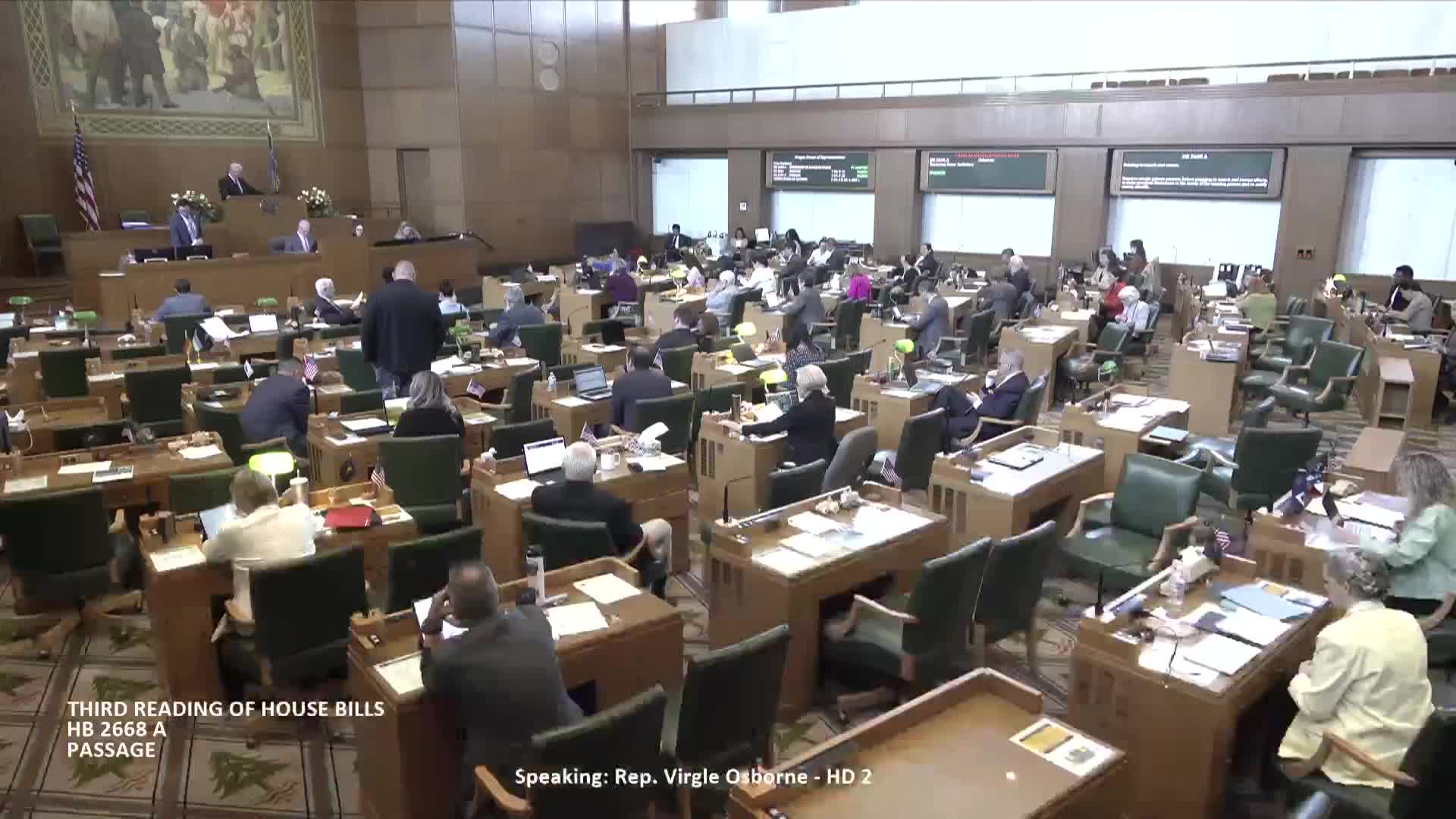House approves measure requiring private search teams to coordinate with sheriffs
Get AI-powered insights, summaries, and transcripts
Subscribe
Summary
Lawmakers passed House Bill 2668 to require private or professional search-and-rescue entities to notify and coordinate with county sheriffs and disclose qualifications and intended use before operating in active searches, prompted by testimony about unpaid bills and families exposed on social media.
Representative Osborne sponsored House Bill 2668, a measure that requires private professional search-and-rescue teams to notify the county sheriff and disclose intent and qualifications before engaging in searches, with limited exceptions for immediate life-safety needs.
Osborne, who described decades of personal experience in volunteer search-and-rescue, told colleagues the measure responds to incidents in which outside teams have joined active searches without coordinating with the sheriff or the missing person's family. Osborne said some professional teams publish footage online without family consent and in certain cases later bill families for search costs: "They don't tell the family they don't prearrange working with the family or the sheriff's department... and at the end of the search, they're gonna give them a bill for $30,000," he said.
Representative Bobby Levy and other supporters described local volunteers and trained K-9 teams who perform dangerous work for free and said the bill protects families and trained responders. Supporters emphasized the bill does not prohibit family members from conducting private searches and allows sheriffs to waive notification requirements when immediate specialized help is needed.
After floor remarks and a closing from Osborne, the House passed the bill by constitutional majority.
What the law does: HB 2668 requires notification to the sheriff before private teams engage in searches, a brief form disclosing qualifications and intent, and protections for families; the sheriff may override waiting requirements in urgent cases. The statute does not change volunteer participation by family members.
